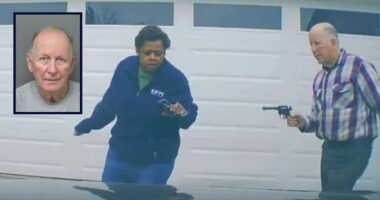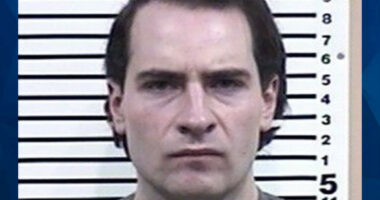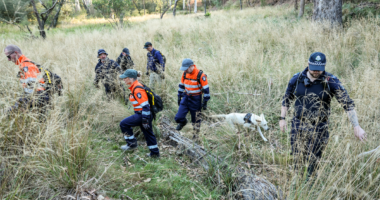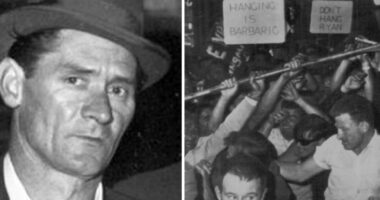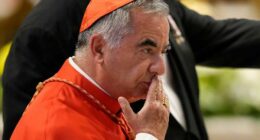Share this @internewscast.com

A cardiologist testified in former Minneapolis police officer Derek Chauvin’s trial Monday that George Floyd had an “exceptionally strong heart,” undermining the defense claim that preexisting heart issues played a major role in Floyd’s death.
Dr. Jonathan Rich, retained by the prosecution as a heart expert, said there was “absolutely no evidence” that Floyd had a negative heart condition.
“Every indicator is that Mr. Floyd had actually an exceptionally strong heart,” testified Rich, a cardiologist at Northwestern Memorial Hospital in Chicago.
Bystander and surveillance video showed Chauvin and two other officers pinning Floyd, a Black man, facedown on the street for nine minutes and 29 seconds on May 25, 2020. Chauvin, who is white, knelt on Floyd’s neck the entire time, even after Floyd ceased moving and breathing.
Chauvin has been charged with second- and third-degree murder as well as second-degree manslaughter. If convicted of second-degree murder, he would likely face 11 to 15 years in prison.
Chauvin’s attorney, Eric Nelson, has argued that Chauvin’s actions did not cause Floyd’s death. Instead, Nelson has claimed, factors contributing to Floyd’s death include heart disease, high blood pressure and drug use.
Rich testified Monday that he saw no evidence that Floyd died due to a preexisting heart condition or from an overdose of fentanyl or methamphetamine, two substances present in Floyd’s system at the time of his death.
“I can state with a high degree of medical certainty that George Floyd did not die from a primary cardiac event and he did not die from a drug overdose,” Rich said.
Like several other doctors who have testified during the trial, Rich said he believes Floyd died as a result of asphyxia, or a low level of oxygen.
“Floyd died from a cardiopulmonary arrest,” Rich testified. “It was caused by low oxygen levels. And those low oxygen levels were induced by the prone restraint and positional asphyxiation that he was subjected to.”
He added that he believed Floyd’s death was “absolutely preventable” and outlined several moments where Chauvin and the other officers could have saved Floyd’s life by repositioning him or initiating chest compressions.
Minneapolis Police Chief Medaria Arradondo testified during the trial that officers receive basic first aid training that includes chest compressions and how to administer Narcan, a medication designed to rapidly reverse opioid overdose. But neither Chauvin nor the other three officers involved in Floyd’s arrest rendered any medical aid at the scene.
Officers “need to provide medical care for a person that is in distress” ― even if an ambulance has already been called, Minneapolis Police Lt. Richard Zimmerman testified on April 2.
Later Monday, the court briefly heard from Philonise Floyd, George Floyd’s youngest brother. He testified about his elder brother’s life, describing him as an avid basketball and football fan who was very close to their mother and had a very difficult time when she died in May 2018.
“He showed us how to treat our mom and how to respect our mom,” said Philonise Floyd, who wiped away tears at times. “He loved her so dearly.”
The state called Seth Stoughton ― possibly the prosecution’s final witness ― to testify after Philonise Floyd. Stoughton, a former police officer and expert on police use of force, said “no reasonable officer” would have believed kneeling on Floyd’s neck was “appropriate” or “acceptable.”
“Both the knee across Mr. Floyd’s neck and the prone restraint were unreasonable, excessive and contrary to generally accepted police practices,” Stoughton testified.
Hennepin County District Judge Peter Cahill, who is presiding over the trial, told the jury before adjourning for the day that the defense is expected to begin calling witnesses on Tuesday. He said the evidentiary portion of the trial is expected to wrap up by the end of the week, with closing arguments slated for Monday.
Calling all HuffPost superfans!
Sign up for membership to become a founding member and help shape HuffPost’s next chapter
Source: huffpost



